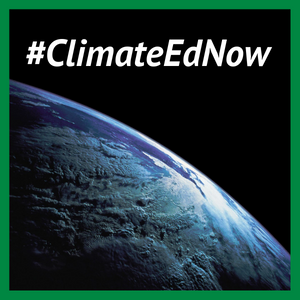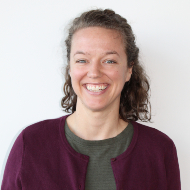At Climate Generation we believe that schools should equip students to shape solutions for their own livable futures. This means offering climate change education that teaches solutions rather than impacts to help youth imagine a world where they can thrive while eliciting hope and curbing anxiety. Effective climate change education centers and celebrates the community knowledge and solutions we need — empowering students of all heritages to lead an equitable and sustainable future. To do this, schools need to provide education that highlights the experiences of underrepresented groups, creates equitable learning experiences for students, and moves communities into a future that solves systemic racism and injustice.
The IPCC Working Group II report released in February 2022 analyzed more than 38,000 scientific papers to communicate that effective adaptation alongside rapid greenhouse gas emissions reduction is needed now. This is the first time a report of its kind has explicitly stated that the impacts of climate change are experienced first and worst by disenfranchised and vulnerable communities. Most importantly, it also highlights the critical solutions that come from diverse communities. We must provide students with the knowledge of the diverse array of solutions, preparing them for a future with green jobs and careers as an opportunity to create justice-based communities. This requires creating educational and training pathways, centering the lived realities of Communities of Color in education, retaining connections to Traditional Ecological Knowledge, and teaching about Western science. To do so, we need to reimagine how we train new and veteran educators, develop professional learning opportunities, and determine focal content related to climate change.
Fortunately, many climate change education leaders have already started this work. The planning leaders of Climate Generation’s annual Summer Institute for Climate Change Education, including 14 organizations from across North America, are developing a model for educator professional development that authentically integrates justice and anti-racist practices into four main aspects of the event: the people, the processes, the culture, and the content. To create the Institute, leaders are participating in collaborative conversations with one another, attendees, presenters, and advisors, resulting in an emergent design process that leverages the expertise of everyone involved, supports collective meaning making, and centers the needs of everyone. We also recognize the great work of partners across the country including, but not limited to, NCSE’s Teacher Ambassadors, Washington State’s ClimateTime program, EcoRise’s Environmental Justice education initiatives, and Ten Strands’s support of California educators.
To create a future that supports thriving, diverse communities rooted in equitable climate change solutions, we need to change our practices from the ground up. I’m looking to youth and justice leaders for their guidance as I embark on a lifelong journey of becoming a justice-based educator.
Read other essays from our #ClimateEdNow series.

 While volunteering at the
While volunteering at the 